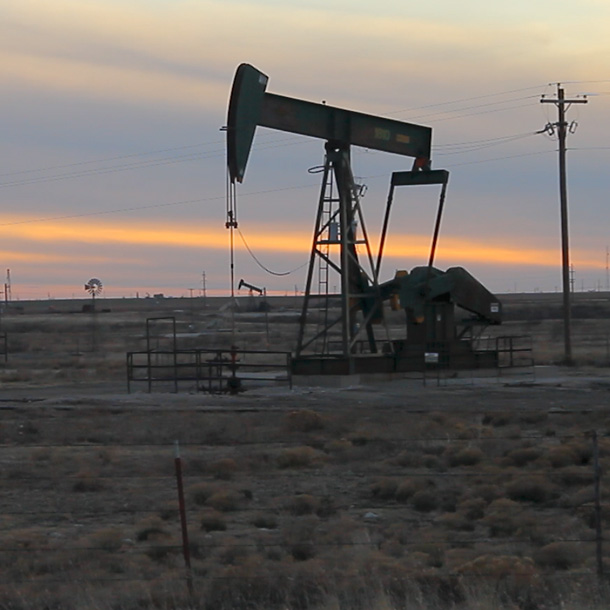Collaboration and Diverse Perspectives: The Makings of a Groundbreaking Report
This week we released our new report, Environmental and Community Impacts of Shale Development in Texas, by the TAMEST Shale Task Force.
We are very proud of the task force’s work and the impact their efforts are already having among the media, interest groups and the government.
This report is the first state-level effort of its kind, and was guided by a spirit of investigation, collaboration and transparency. One unique aspect of the report worth noting is its cross-disciplinary approach, bringing together a diverse set of experts from academia, environmental organizations, the oil and gas industry and state agencies to achieve a balanced, informed consensus on the impacts of shale oil and gas development.
Task force members represented broad technical knowledge and experience, and offered a variety of perspectives. For over a year and a half, they maintained focus on the scope and goals defined in their original statement of task to produce a consensus report on the science underlying shale oil and gas development and its impacts.
One of the more significant findings of the report is that we need to have a more inter-disciplinary approach in the research on shale oil and gas development. The connections between seismicity, land, air, water, transportation and social impacts from shale oil and gas development can’t be addressed in isolation. We need input from communities, scientists, agencies and the industry itself.
“In any complex system like this, there are tradeoffs as you make decisions, and hopefully this will allow us to look at all of the solutions that are out there and understand that as we migrate in one direction or another there are positives and, perhaps, not-so-positive consequences in others areas,” John Barton, the lead author of the report’s chapter on transportation, said in our public briefing on the findings of the report.
For instance, building pipelines to alleviate road impacts could result in fragmentation of ecosystems and land resources along the pipelines’ routes. Thinking through the trade-offs early on in a systematic way could lead to better decision making about how to address these impacts. The task force found a need for more discussion and evaluation of these connections and the trade-offs involved in mitigating impacts.
“To me, that is a unique aspect of the report,” Michael Young, a task force member who co-authored the chapter on water quantity and quality, said during the briefing. “For example, we don’t want to be making decisions on water outside of consideration of land, communities and transportation; that basically doesn’t allow us to always make the right decisions, because we’re not considering these other aspects. In my mind, what really makes the report interesting, and where we’re able to identify some of the gaps in knowledge, is just how does making decisions on water management impact transportation? How does that impact communities? How does that impact air and land? To me, that’s one of the real benefits of the report, and it also highlights areas where we need to do additional work.”
At TAMEST, we also appreciate that the need for cross-disciplinary research and dialogue isn’t limited to shale development. We brought together some of our state’s top researchers across various fields with leaders from federal research funding agencies at our Texas Research Summit. At our 2017 Annual Conference, experts from numerous disciplines gathered in one place to discuss and better understand issues like infectious diseases, water supplies and the future of higher education in the state. TAMEST is proud to be known as the Texas organization where this collaboration and knowledge-sharing has a home.
We hope to engage with all of you on more of these collaborative efforts going forward, and encourage you to take time to read and share this groundbreaking report.
My very best to you,
Mary Beth
Mary Beth Maddox
Executive Director
News Coverage:
Study finds little evidence fracking pollutes drinking water
Houston Chronicle
Elite shale task force says fracking adds $2 billion to Texas road repair costs
Dallas Morning News
The most overlooked finding in groundbreaking shale study
Houston Chronicle
Basin operators praise thoroughness of shale study
Midland Reporter-Telegram
Study of oil and gas drilling finds pollution and connections to earthquakes
Houston Chronicle
The Fracking Boom Has Taken A Toll On Texas’ Infrastructure
Texas Standard (Statewide public radio show on NPR stations)
Fix shale problems before it’s too late, task force chair says
Houston Chronicle
Commentary:
Learning from Texas’ Shale Energy Experience
TAMEST/Christine Economides, Cynthia and George Mitchell Foundation Blog
TXOGA on TAMEST Shale Impact Report
Texas Oil and Gas Association (TXOGA)
Report identifies ways to reduce water contamination from oil and gas development in Texas
Environmental Defense Fund (EDF)
New Report: Texas Oil and Gas Being Developed Responsibly, With Positive Economic Impacts
Energy in Depth/Independent Petroleum Association of America (IPAA)


